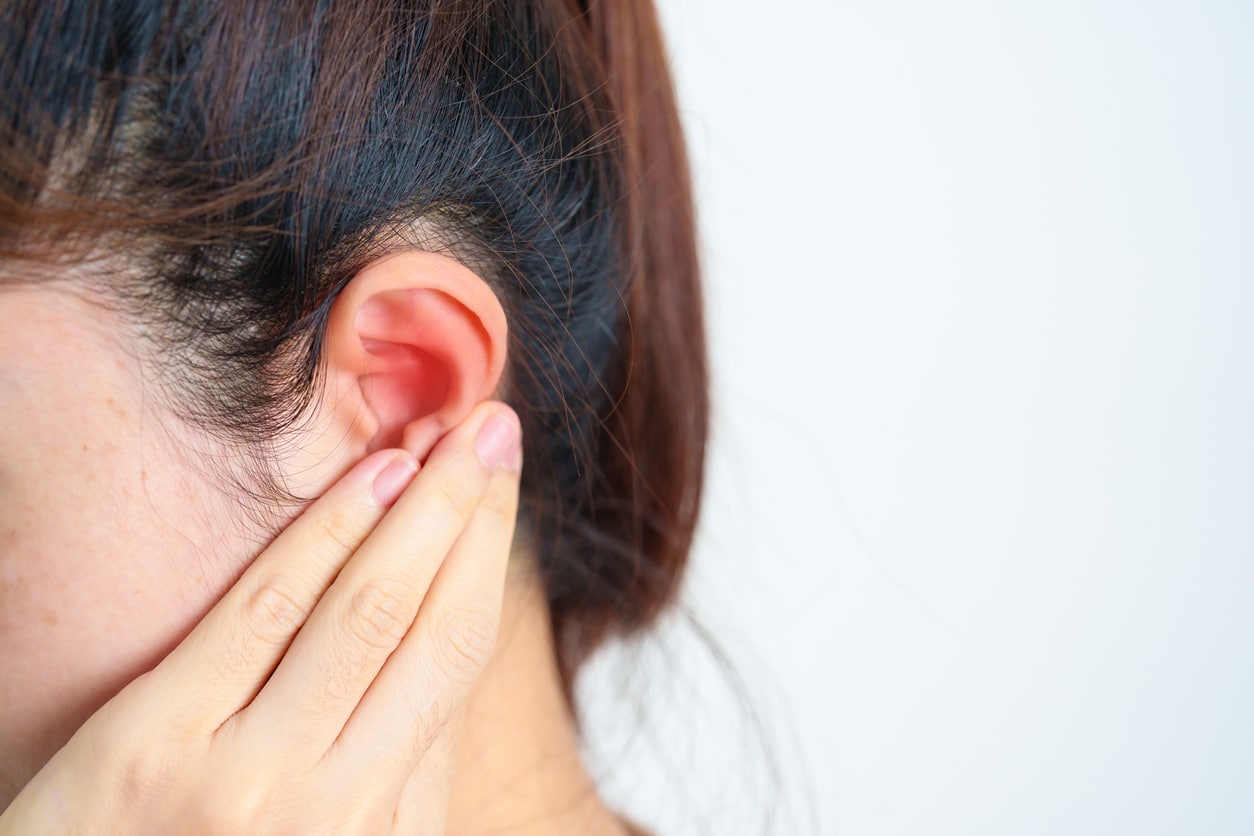While aging and loud noise are the most talked-about causes of hearing loss, infections are another important, yet sometimes overlooked, factor. It’s helpful to know what to look for to help promote healthy hearing.
Here are some infections families should keep in mind.
Swimmer’s Ear (Otitis Externa)

Warm summer months often draw residents to Burdette Pool. But spending time in the water and not allowing ears to dry could lead to swimmer’s ear, an infection in the outer ear caused by moisture that gets trapped after swimming.
This moist environment creates the perfect breeding ground for bacteria. If left untreated, the infection could move deeper into the ear and potentially cause hearing loss.
Some symptoms to watch for are:
- Ear canal itching or discomfort
- Drainage or swelling
- Difficulty hearing
To help prevent swimmer’s ear, gently dry ears after water activities and avoid inserting cotton swabs into the ear as that can push bacteria deeper into the ear.
- Gently dry your ears after water activities
- Avoid inserting cotton swabs into your ears
Meningitis
Meningitis is a severe infection that causes inflammation around the brain and spinal cord. In bacterial cases, it can cause damage to the auditory nerve or inner ear, resulting in sudden and sometimes permanent hearing loss. In fact, 5% to 35% of people who contract meningitis may develop some level of hearing loss.
Early detection is key. If treated quickly, hearing loss may be minimized or managed with hearing aids or cochlear implants.
Measles and Mumps
Though these viral infections are rare, both measles and mumps can still occur, and both are linked to hearing loss.
- Measles can lead to ear infections and inflammation in the inner ear.
- Mumps has been tied to sudden, irreversible hearing loss in one ear in rare instances.
- Measles may also cause encephalitis, which can damage hearing-related brain functions.
Other Infections That May Impact Hearing
Less commonly discussed viruses and diseases have also been known to cause hearing issues:
- COVID-19
- Zika virus
- Rubella
- Cytomegalovirus (CMV)
- Syphilis
- Herpes simplex
- Pneumococcal infections
These can damage nerves or inner ear structures and result in partial or complete hearing loss.
If you or a loved one is recovering from an illness, it’s smart to include hearing evaluations as part of your follow-up care. Early testing can catch changes before they become serious.
You can protect their hearing by:
- Being aware of symptoms during illness
- Getting regular hearing checkups
- Seeking expert help at the first sign of hearing changes
If you’re interested in learning more about hearing health, contact Hearing Healthcare Center, Inc. today for a hearing test or consultation.